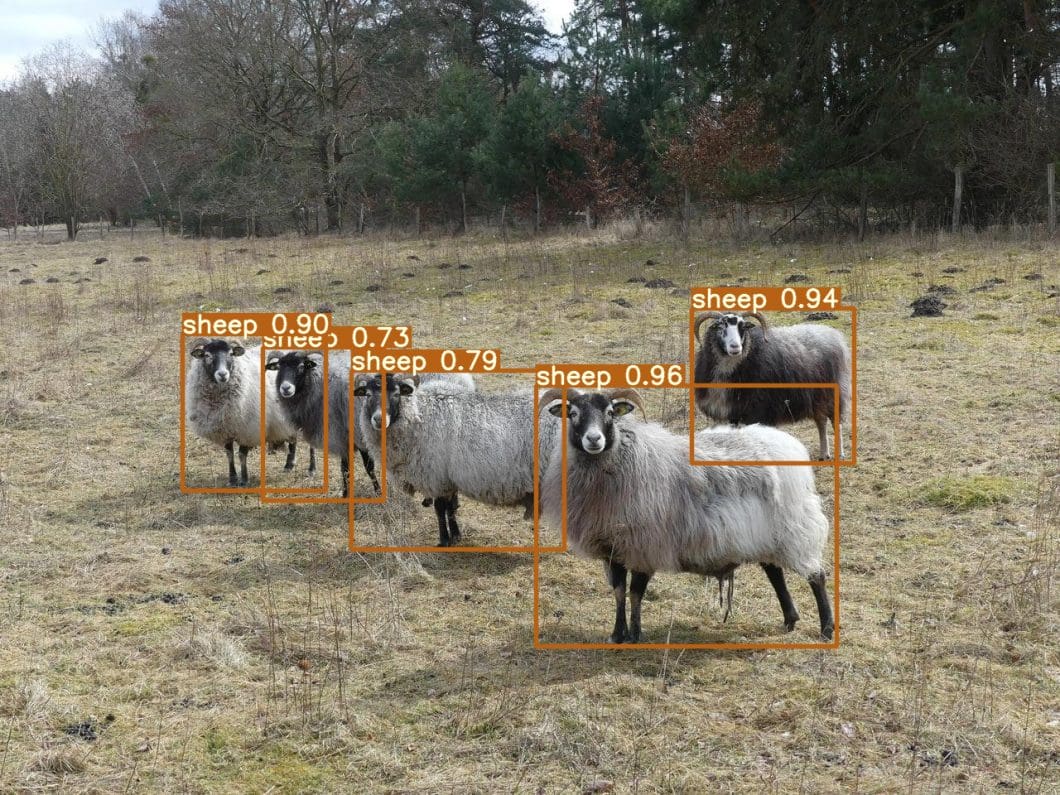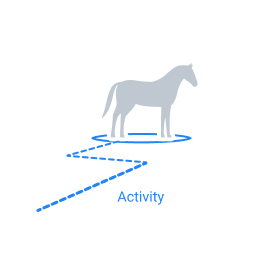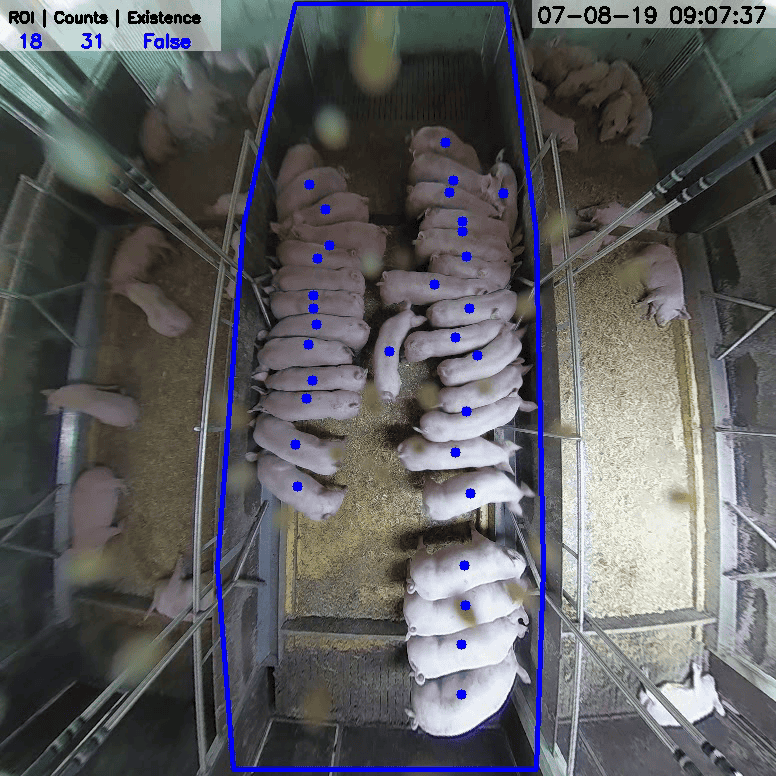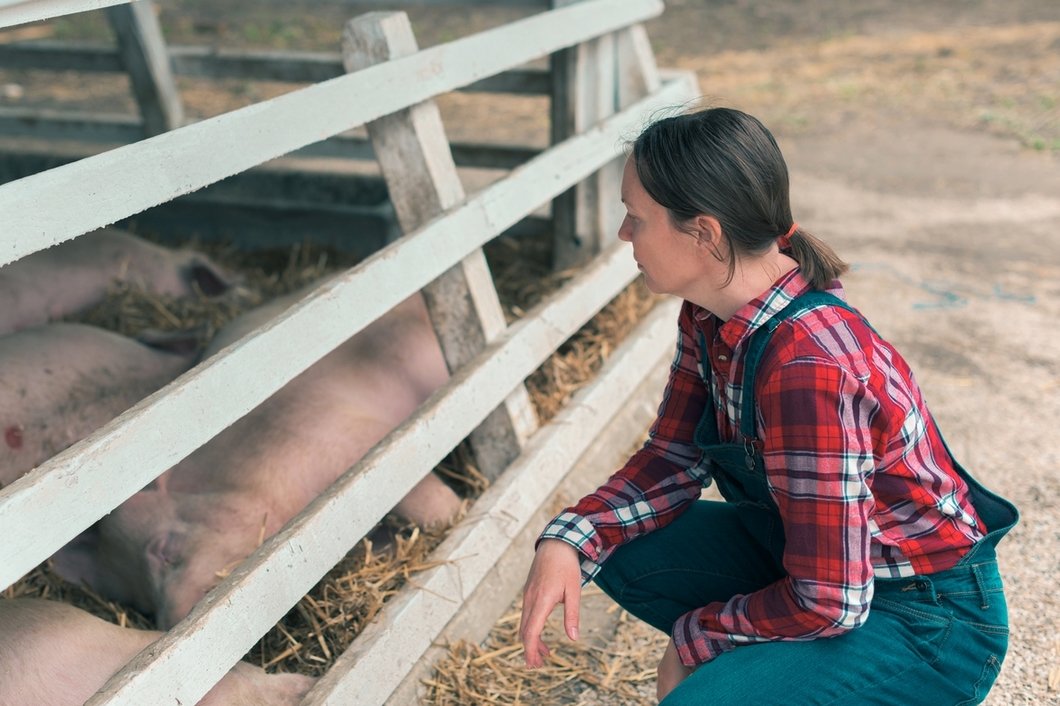Autonomous systems for animal observation that can reach and even surpass human accuracy, based on viso.ai. Animal monitoring with computer vision offers the possibility of non-intrusive animal monitoring in livestock farming.
Livestock products play a crucial role in meeting global food demands. We project the demand to increase by 70 percent, especially due to a growing population estimated to reach 9.6 billion by 2050. While the demand is growing, the need for new technologies such as deep learning in the agriculture market is bigger than ever.
Especially the growing demand for animal species monitoring systems makes visual Artificial Intelligence (AI) one of the most promising technologies to automate inspection and cut costs to sustain under high-cost pressure and fierce competition. We expect the livestock monitoring market to grow with a CAGR of 18.2%, reaching a total market size of USD 13.3 billion by 2027. Factors such as animal comfort management, reproduction management, or the early detection of infectious diseases influence this growth.
About us: Viso Suite helps enterprises realize application value by delivering control of the entire ML lifecycle. While point solutions provide support for only a fraction of a project, Viso Suite handles everything from development to training to deployment to maintenance. Learn more by booking a demo with our team.
In this blog, we will examine the effectiveness of computer vision systems and machine learning algorithms employed for disease detection and improved animal welfare.
Early detection of infectious diseases
The global COVID pandemic has heightened the public’s awareness of infectious disease outbreaks (think: livestock diseases, etc.). A recent example is the African Swine Fever with devastating death tolls, millions of animals getting culled, and a final result of significant economic loss.
Early warning and detection of infectious diseases will help to greatly reduce the spread of bacteria, viruses, or parasites. This detection is evident in early symptoms including increased body temperature (fever) and weakness. These symptoms can be too trivial to be detected via simple observation with the human eye, especially during an early stage of infection.
Moreover, given the predominantly low staff-per-animal ratios, the short periods available for observation only permit the detection of substantial changes, which may be too late for effective intervention in most cases.

Computer vision for animal monitoring
Given the fast-paced advances in Machine Learning, it has become viable to develop autonomous AI systems for animal monitoring and data analysis with computer vision that can reach and even surpass human accuracy.
Focusing on the current outbreak of African Swine Fever, studies show that video analytics offers the possibility of non-intrusive animal monitoring in real-time. The results show that after an infection, a significant decrease in animal motion can be detected just four days after the experimental infection with the ASF virus. This was the same day that the virus was detected in blood using qPCR.
However, the methodology in this example was tested on only eight animals. Additionally, it could not exclude human-related motion and is inaccurate at tracking the animals individually. Moreover, a scalable system would be needed to cover the entire farm.

The results of our AI animal monitoring PoC
Animals infected with the ASF virus show a progressive deceleration in performing daily activities. This is a result of muscle weakness from the early stages of infection. Through continuous monitoring of animal behavior with Deep Learning techniques, we can detect animal slowdown and weakening. Viso.ai has developed a custom Deep Learning AI model for this use case for us at scale:
- A comprehensive dataset of more than 100’000 swine of different ages and sizes
- Optimized for covering large areas (fish-eye cameras)
- Detect and compare activity levels at >96% accuracy
- Detect, split, and track grouped animals with Computer Vision
- Real-time anomaly notification via API to third-party systems
Deep Learning inference runs on the Edge using modern AI hardware (NVIDIA Jetson TX 2) with the Viso Suite infrastructure. Real-time action triggers are configured based on the individual use case to detect various behavioral changes.

What’s next?
Through real-time video processing, Computer Vision can surpass human accuracy. Thus, enabling new autonomous, non-invasive methods for animal monitoring and inspection.
The viso.ai blog covers more computer vision topics from use cases to technological deep dives:
- Read about object detection, the technology behind this use case
- See a complete list of real-world computer vision applications
- Read about reasons why computer vision projects fail
- Gain inspiration from computer vision projects
